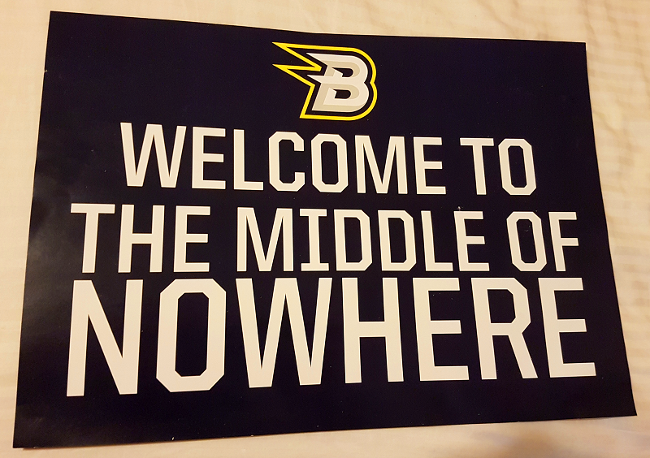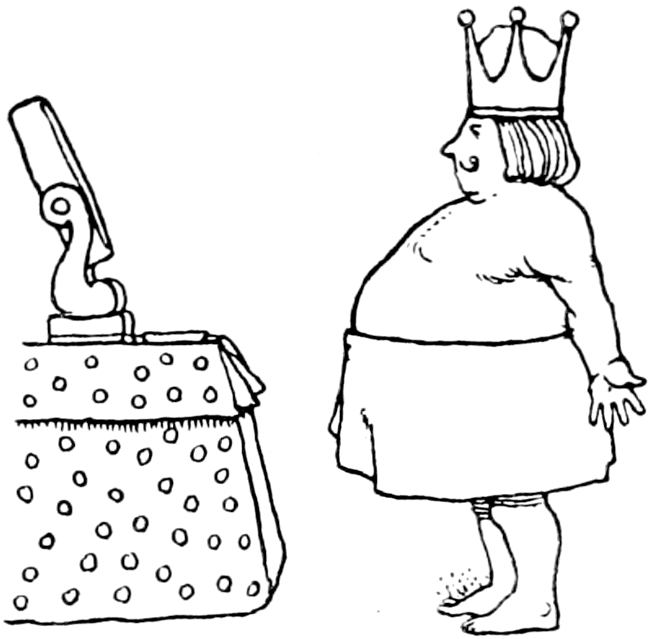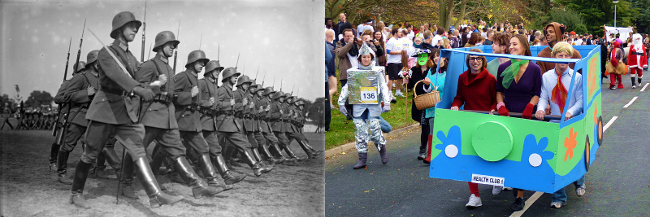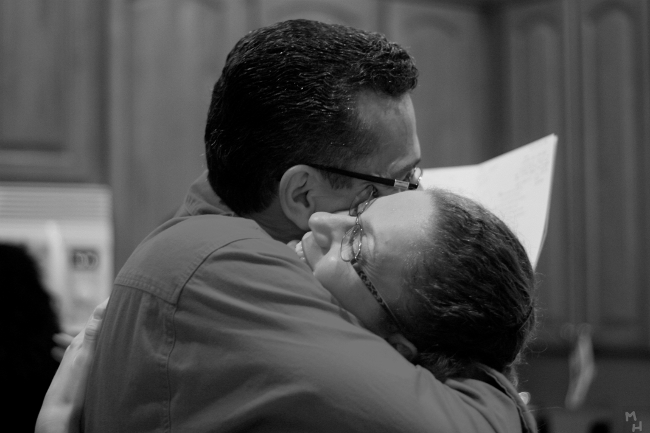The (nonexistent) Centrists
Posted on 21 February 2020 | Comments Off on The (nonexistent) Centrists

From the US we hear a lot about the “centrist” vote. This vote is even lauded for being moderate and level-headed. In Australia we hear about the “swing” vote. These are voters who are not actively aligned to any party and may vote as the wind blows.
These are in fact the same sorts of voters in both countries.
Since the US has devolved into a two-party system, both parties have reason to be complimentary of non-aligned voters. They will be told that they are the good people, the people with a thoughtful vote. Honestly, if they were that thoughtful then upon occasion they would be centre. Other times they would appear left or right, depending upon where the goalposts have moved between the two parties.
Once upon a time the Democrats were more right-wing and the Republicans were more left. In the nineteenth century Democrats voted against the freedom of enslaved people and Republicans voted for their release. In the sixties Democrat President John F Kennedy proposed and the US legislature voted in a Civil Rights Act that outlawed discrimination based on race, color, religion, sex, or national origin. In the 1980s Republican President Ronald Reagan brought in many neo-liberal policies which eroded the rights of workers and freed the very wealthy from social responsibility. In the 1990s Democrat President Bill Clinton put forward very similar policies. You would be hard pressed to find much centre bewteen those two presidents.
So who are these “centrists”?
A great number of them will be people who are terrified of conflict. They don’t want to be part of any side. They don’t want to reveal a preference for fear of choosing the wrong one and being punished for it, or worse…facing violence. The more heated the debate becomes between two prevalent sides, the more they will want to disappear.
Another related set of people will not want to express a preference until such time as they can see who will be a winner. They want to be on the side of a winner because not only will it be safer due to the numbers, they will also have more opportunities to gain power for themselves.
Then, we have the manipulators. When sides of an argument are evenly matched, these are people who happily conspire to influence all sides. Their position of indecision becomes a form of power in its own right. “I might join your side, if you do this for me.”
Finally, we have a small number who have an opinion that for the moment looks like centre.
Trying to convert these people is a waste of time. Most of them will say “yes” to anything you say, without meaning it. They will keep saying “yes” all the way to the poll, then vote as they like. The polls will be skewed and you will have gained nothing.
The people you are most likely to convert are those who genuinely tell you, they don’t know. Then when they are hit by an issue that affects them personally, they will see why they might want to take a side. Just remember, though, these people are unlikely to become pure left or pure right.
In Australia it was the left-wing Labor party in alliance with the Protectionist party that brought in the White Australia Policy, in order to “protect” workers’s jobs from Asians. Many people are progressive or conservative on one policy, and are the polar opposite on other policies. That’s the closest most people will get to being “centrist”: a patchwork of self-interests.
If you want to gain people to your political position, consistently be on the side of universal well-being. Constantly press to find the most effective means by which to maintain universal well-being. Treat everyone with kindness and respect, while sustaining a strong position of justice. Being nicey-nice, don’t rock the boat, does not equate to a stable society. That is a position of fear that gives predators power. Being a party of well-being you will be attractive because you will represent deep safety. Everyone will know your motives are for their best interest. This may be a slow journey, but your consistency will pay off.
In peace and kindness,
Katherine
“Give Up”
Posted on 17 January 2020 | Comments Off on “Give Up”

We are all constantly being bombarded with messages that are meant to make us give up.
“Want to change the political system? Give up. It’s too big and you can’t do anything.”
“Want to change the environment. Give up. It’s too big and you can’t do anything.”
“Want to change the economy? Give up. It’s too big and you can’t do anything.”
And when you are feeling alone and disspirited, it is all too easy to give in to these messages. But they are not true.
Things change all the time. Life is change. Nothing remains the same from moment to moment.
Those in power gleefully rub their hands as they wear you down. However, when we find each other then we can wear them down.
Hang out with people who help you to remain resilient, and keep being that water droplet that helps to erode the mountain.
In peace and kindness,
Katherine
Reclaim Democracy
Posted on 18 December 2019 | Comments Off on Reclaim Democracy

Dear young people who care, plus:
In the scheme of things democracy is a very new invention.
I had a grandparent who was born in 1899. He could potentially have had a grandparent who was born in 1799. And that grandparent could have had a parent who was present for the writing and signing of the US Constitution. That is only three people distant. You may be four people distant, but that still isn’t all that distant in human history.
Other people of other nationalities have had democracies for a much longer time, such as the people of Iceland, the Haudenosaunee, and of course the Greeks. Democracy is still evolving. It did not descend from the skies fully formed. We created it and we can change it. I have ideas about how this can be done. I hope you do too.
Sadly, of late our democracies have been seriously eroded. Civilisation has developed as far as it has due to human cooperation. That cooperation can and has been twisted by people who wish to control. If we wish to regain a sense of security, freedom, independence, and contentment, then we will need to regain a sense of connection with one another. With that connection we have to find the will to collectively pull ourselves out of our current climate and social emergencies.
To reclaim democracy we must start by readjusting our conception of it.
Western democracies are still living in the shadow of aristocracy. In our stories we are still idolising the aristocratic hero who is the sole hope for his people. Even when he begins as a farm boy, he is “special” and therefore destined for greatness, and a position of executive power. When we experience such stories, we like to imagine ourselves as this special person. The fact of the matter is, if it isn’t you already, it will never be you. People are always born into their position in this system.
Stop thinking of democracy as a more enlightened form of European hierarchies! We are not living in a true democracy if we are simply showing our consent to be ruled by a ruling class. The vote should make it possible for anyone who has the best interests of their country to attain a decision making position in our legislative system. These positions must not be sold to the highest bidder who can afford to manipulate the media.
Article 21 of the United Nation’s 1948 Universal Declaration of Human Rights states that “The will of the people shall be the basis of the authority of government”. If the will of the people is the source of democratic authority, then we are in fact the government. We govern ourselves. The people who we install in our legislatures are our public servants meant to represent our interests on a daily basis, so that we can get on with contributing to our society in other ways.
We should not see the legislative branch of our public service as “the government”. We should not see our presidents and prime ministers as the highest power of the land. That is the thinking of aristocrats and oligarchs. They are all public servants. You are the boss, we are the boss! We vote these people in and we vote them out. We do the work, we pay the taxes, and they are our employees. Nothing more, nothing less. If this is not the case, we are not living in a democracy and need to take action.
I have one suggestion, which if we cooperate to press the point, will make a big difference.
Go to rallies. Go to party conventions. Turn up anywhere politicians are and ask this question: “Will you tax the rich?“
This requires a simple one-word answer: YES! If politicians do not say “yes” unequivocally, they aren’t working for you. They are either working for their own individual financial interests or the interests of other wealthy people, but certainly not you.
Most of you reading this are not the rich. Taxing the rich is unlikely to ever harm you. Taxing the rich means your public service has extra money to better provide services such as health care, education, disaster relief, and more. Think of all the things you could insist that money is spent on to better your life and the lives of your neighbors!
Simply turning up at political events with signs that say TAX THE RICH will cause those people abusing your goodwill to shake in their boots. Do this relentlessly. Making this happen will show who exactly is in power. Then we have a lot of hardwork to remake our democracy so that it is fairer, kinder, and leads to a more peaceful future. And we can do this!
In peace and kindness,
Katherine
Big Power Does Not Provide Big Answers
Posted on 22 November 2019 | Comments Off on Big Power Does Not Provide Big Answers

I stumbled across an old article that asked, is humanity smart enough to save itself from extinction. The author’s answer was “no”. He felt that if we were smart, we would do away with democracy. A strong leader would then force everyone to do the right thing fast enough to avert disaster.
We have several problems when that approach is taken.
First of all anyone with that sort of power is often either already corrupt or becomes corrupted. People who are given too much attention and too much influence start to have difficulty seeing outside of themselves. They have been put in a super-human position, and when they identify with that position, they lose their capacity for humility and empathy. This is why jesters were so important in ancient courts. They kept a ruler from seeing themselves as more than human.
A super-human is unlikely to take wise council. Their mounting vanity will tell them that they already know the answers. People who want a piece of their power, will tell the leader anything they wish to hear while carefully manipulating for what the advisor wants. Followers will be loyal in order to be seen as great by association. They will even encourage their leader to indulge in all the things they have always wanted to do, and live vicariously. They may not have the means to ride around in a golden limousine, but the person they support does, and they enjoy imagining themselves on smooth leather seats swilling down champagne.
We have all seen this in rock stars, movie stars, and buffoon presidents and prime ministers.
You might be saying, ah but what of our social justice leaders? I know a saying that goes,”Never try to meet your heroes, lest they be found to have feet of clay.”
Sometimes a person is in the right place at the right time in order to become a representative public hero. This is what happened to Greta Thunberg. She is wisely upbraiding leaders and pointing to scientists for answers, rather than taking the reigns of power.
Some become wiser and more compassionate in the telling. Quickly they become an icon, and the truth of who they are becomes submerged. Because they have so much media attention, people pin all their hopes onto them. However, the reality is these people are a mixture of light and dark. Quite a number suddenly find they have the power to indulge in their basest desires, and others will cover up their actions. Jimmy Savile is famous for both raising forty million pounds for charity, and secretly committing pedophilia on the very children he puportedly was trying to help. Others have done similar things, but to say anything is to attract their followers’s fury, regardless of incriminating facts.
Sometimes certain people really are that good, BUT their movement relies too heavily upon them for their momentum. Eventually, it becomes clear to some madperson that if this leader is killed, the movement will fall into disarray. Much of the good they were able to create in the world crumbles, because they were made solely responsible for it.
Democracy is not just about ensuring all people are represented in the government of their nation. Democracy is also about diffusing power, so that it is never too concentrated in any one set of hands. There is no magic to the saying that power corrupts. It is a quantifiable result of being set too far above other human beings.
We are running out of time. However, a strong man leader would only ever provide a short-reprieve, if he were capable of making the right choices. We have to stop offering up our power to a few charismatic humans in exchange for their taking responsibility for our big decisions. How many politicians gleefully take your power, while dodging responsibility?
We must change ourselves. We must change our culture. We must start sharing a focus on life-affirming values. We may differ on how to enact these values, but so long as we agree on them, we have some place to start working together for better days.
If you feel that you have to see big results from your actions, in order to feel they are of any worth, then you are still stuck in the days of worshipping at the feet of god emperors. We have to value ourselves and one another for all our contributions: big or small. People who are in a position to make bigger contributions should not be valued above all the other people who are doing the best they can where they are. The size of the contribution is not the point, the point is that we all care, and we are all doing something.
Our biggest challenge right now is just learning how to be friends with one another. Because as friends we will be able to do so much more.
In peace and kindness,
Katherine
We Need Connections Not Bonds
Posted on 9 October 2019 | Comments Off on We Need Connections Not Bonds

Cmglee / CC-BY-SA 3.0
If we are in lock-step with one another, we don’t have to be afraid of being judged. If we are in lock-step with one another, we don’t have to spend time thinking for ourselves. If we are in lock-step with one another, we can become a formidable group capable of easily dominating others. There’s a lot of safety in numbers here, but no safety in individuality.
If we think more for ourselves, we still need one another. We need shared experiences where we connect. We need to cooperate in order to achieve important goals such as developing new medical treatments or addressing the climate crisis. This sort of group behaviour requires a lot more emotional intelligence, since we must constantly negotiate interactions with a wide diversity of individuals, and find agreement through choice rather than social pressure. This is why it is so hard for the left to get their act together. Not all of them have the means to develop emotional maturity. Such maturity is what makes healthy group behaviour possible.
In peace and kindness,
Katherine
A Fairer Distribution of Wealth
Posted on 8 August 2019 | 2 responses

Currently Australian minimum wage is $740.78 per week.
If you lost your job due to automation, off-shoring services, company bankruptcy, a national recession, or any number of reasons that may be out of your control, as a single person with no children you could possibly receive $277.85 per week from New Start provided you are able to jump through all their hoops.
If you have a partner, then you can expect $250.85 per week.
The poverty line in Australia is considered to be $433.00 per week.
The base salary for a Senator or Member of Australian Parliament is $3,932.69 per week. Though in actual fact, many make more and are given a sizeable superannuation payment each year.
The Australian Prime Minister makes $10,547.30 per week.
This means our Prime Minister is making more than forty times what our poorest people are and more than fourteen times minimum wage.
According to the Federal Treasury department the median wage in Australia is $1,057.69 per week. So the Prime Minister is also making about seven times what an average Australian takes home.
Purdue University in the US using data from Gallup polls determined that the point at which people were satisfied with their lives in Australia is $159,000 or $3057.69 per week. Let’s say that we aimed for that to be our new median wage.
Since the Australian poverty line is determined to be half the median. Let’s reset it to $1528.84 per week and make that the legal base line for social welfare payments. Let’s also increase minimum wage to $2293.26 per week. Personally, I think it should be closer to the median. However, it is more than our current median wage and would potentially ensure two people living together have sufficient funds to achieve life satisfaction.
Now let us put into place legislation that says the Prime Minister, Senators, and Members of Parliament can not make more than twice the country’s median wage and they most especially can NOT make more than four times the lowest social welfare payments.
If a Parliamentarian wants a raise, then the whole country gets a raise! This reduces Federal corruption and ensures greater social fairness. It might also encourage government to tax both wealthy individuals and corporations, so that they are more fairly contributing to the well-being of the nation in which they are creating their wealth. I would also hope it would encourage the creation of a maximum as well as minimum wage rate.
In peace and kindness,
Katherine
Balanced Budgets?
Posted on 24 July 2019 | Comments Off on Balanced Budgets?

What government is genuinely seeking a balanced budget when they cut taxes from those who have much more than enough?
What sleight of hand is at work when upon giving money to the well-to-do, those in power wail that they have no choice but must cut government services to keep that budget balanced?
What sort of balance is this where the rich get richer and the poor get poorer?
This one-way stream of money from those in poverty to those of wealth, faciliated by the government, is a means of dissolving our democracy.
Those with money can buy politicians through campaign contributions. Those with money can even buy a position in government through their advertising dollars.
Keeping people poor means they no longer have the time to stay abreast of issues in order to vote effectively, nor can they have their voices heard through the corporate owned media.
Democracy only works when our lives are secure and we are all equal. There is no equality in a rich/poor divide.
We have to give up status-seeking. Each one of us should have the capacity to feel that we are enough. We have to give up dominance. There is greater security in cooperation. Being special should not be necessary to living a contented life. Once we give these things up and learn to share, it becomes much easier to remove the bullies from power. This is how we renew our democracy.
Peace and kindness,
Katherine
Block the Trolls
Posted on 23 July 2019 | Comments Off on Block the Trolls

I firmly believe that it is important we remain available to and show patience toward those with a genuine wish to grow. But that “genuine” is an absolute must.
We open the doors to those who are respectful, to those who will listen, to those who are clearly making an effort.
We show basic kindness and respect toward everyone, providing an example of the sort of world we wish to create.
It is important to not waste our best efforts on the people who will not listen, do not care, twist our words, and wish us harm.
So much needs to be done in the world. Why break your heart over the intransigent, when people and creatures and living beings much closer to you are in need of your help?
Wrecking yourself to save the world will not save the world.
Trust that by helping those ready to be helped, they will be available to someone a little behind them and help that person to grow and so on. This is the daisy-chain effect and it does work.
In the meantime you have every permission to block the trolls.
In peace and kindness,
Katherine
How the fear of death makes people more Right-wing
Posted on 20 June 2019 | Comments Off on How the fear of death makes people more Right-wing

Author Bobby Azarian is a cognitive neuroscientist, a researcher in the Visual Attention and Cognition Lab at George Mason University, and a science writer whose work has appeared in The Atlantic, The New York Times and Scientific American, among others. His research has been published in journals including Cognition & Emotion and Psychonomic Bulletin & Review. He also runs the blog Science Is Sexy.
A string of terror attacks across the globe have shaken the world’s most powerful nations to their core. As a result of these tragic events, and the fear-mongering from politicians hoping to exploit them, many feel that an existential threat is nigh.
To make matters worse, a highly influential and experimentally verified theory from social psychology predicts that, as long as an existential threat looms, the world will grow ever more divided and increasingly hostile. Terror management theory (TMT) explains how and why events that conjure up thoughts about death cause people to cling more strongly to their cultural worldviews – siding with those who share their national, ethnic or political identity, while aggressively opposing those who do not.
Consequently, sharp increases in deadly terror attacks around the world serve to create a sweeping psychological condition that sets the stage for waves of far-Right nationalist movements that encourage prejudice, intolerance and hostility toward dissimilar others.
Europe’s nationalist surge, Brexit in the United Kingdom and the presidency win for Donald Trump in the United States are just the most recent demonstrations of TMT, first proposed by social psychologists in the 1980s and derived from cultural anthropologist Ernest Becker’s Pulitzer Prize-winning work of philosophy and psychology, The Denial of Death (1973).
Becker’s big idea was that much of human action is motivated by a fear of death. Unlike other animals, which lack higher cognition and the ability to reflect, humans recognise the inevitability of their own death. The conflict that results from this realisation and the natural desire to live produces cognitive dissonance that causes profound terror and anxiety. According to Becker, humans invented culture as a buffer for the terror. By adopting cultural worldviews that instil life with meaning and value, one can effectively manage the subconscious dread that is always bubbling below the surface.
While religions offer a path to literal immortality through the belief in an afterlife, non-religious cultural worldviews – such as political ideologies and national identities – provide paths to symbolic immortality. Symbolic immortality refers to being part of something larger that will ultimately outlive the individual, such as a great nation or a movement with a collective identity and pursuit. Much of human effort is dedicated to acts that might help one be remembered by groups or society long after death.
Of course, no matter how logical o intriguing a theory might sound, it is merely speculation if it makes no testable predictions that can be confirmed or disproven by experiment and measurement. What might be most impressive about TMT is how much success it has had in the laboratory. Hundreds of empirical studies have provided support for the theory by confirming something called the mortality salience hypothesis.
According to this hypothesis, if we do in fact adopt cultural worldviews to curb a fear of death – as TMT posits – then reminders of our mortality should produce actions that serve to strengthen faith in our worldviews. Specifically, death reminders should motivate individuals to invest more in groups to which they belong and, conversely, to act more aggressively towards those with different cultural worldviews and national or ethnic identities.
A particularly amusing experiment used hot sauce to measure the phenomenon. Students were broken into two groups and asked to write an essay about their own death or another, more benign topic. They were then presented with someone who did or did not disparage their political views, and asked to decide on the amount of mouth-burning hot sauce that person should have to consume. In line with TMT and the mortality salience hypothesis, participants who’d written about death allocated a large dollop of hot sauce to those who didn’t share their worldview, while those in the control condition did not.
Another mortality salience study on aggression conducted on both Iranian and US college students shows disturbing results. One group of students was asked to ‘jot down, as specifically as you can, what you think will happen to you as you physically die,’ and to describe the emotions aroused. Participants in the control condition were given similar questions related to dental pain. The results showed that Iranian students who were made to think about death were more supportive of martyrdom attacks against the US, while those in the control condition opposed them. Similarly, death reminders made US students who identified as politically conservative more supportive of extreme military attacks on foreign nations that could kill thousands of civilians.
From these findings, it is easy to see how nations under attack can quickly grow more divided and increasingly hostile towards those from outside cultures. In fact, studies have shown that mortality salience can amplify nationalism and intensify bias against other groups. Evidence suggests that reminders of death can even influence elections, pushing voters to favour candidates on the Right. Five weeks before the 2004 US presidential election, scientists conducted studies on New Jersey voters to see whether mortality reminders influenced voting directly. Participants were given the same questions about death as the Iranian students in the previously mentioned study, while those in the control condition received parallel questions about watching television. What they found was pretty astonishing. Those voters prompted to think of death said they intended to vote for George W Bush, the hawkish conservative president, by a three-to-one margin; those prompted to think about TV strongly favoured the Left wing challenger, John Kerry. Such results could help to explain why, after the terror attacks of 11 September 2001, Bush went from having some of the lowest approval ratings ever to being extremely popular with both Republicans and Democrats.
So what does this all mean for the world today? If massively destructive terror attacks continue, terror management theory predicts that societies will grow exponentially more chaotic and divided. Heightened aggression towards dissimilar others produces a tendency to favour war over peace. Right-wing nationalism will thrive along with prejudice and intolerance. Islamic fundamentalism will flourish while terror attacks grow more frequent. Raised tensions between nations, ethnicities and political groups will lead to further conflict, creating a devastating feedback loop of suspicion and violence.
But it is critical that we not lose optimism in these challenging times. By becoming cognisant of the inflammatory and divisive effect that death reminders and perceived existential threat have on all of us, we can begin to take steps toward defending against it. After each terrorist attack we must actively work to unite groups with different nationalities, ethnicities and cultural worldviews. We must help build bridges between dissimilar communities, and discourage ideas such as immigration bans. And we must be conscious of the way some politicians use fear-mongering and propaganda to manipulate voters. Such efforts, combined with a calm and cool temperament, can help manage the terror of mortality in ways that preserve rationality, compassion and peace.
Originally published at Aeon under CC BY-SA 4.0 International
2016 November 17
The End of Days?
Posted on 13 June 2019 | Comments Off on The End of Days?

Kubler-Ross wrote in the 1960s about how we experience grief. It has been shown that we do not pass through stages of grief, but what was once described that way still illustrates the many ways we may grapple with it.
Here are five ways we may respond to grief: denial, anger, bargaining, depression, acceptance
Denial: This is not happening.
Anger: This should not be happening.
Bargaining: If I make this small change now, you must keep everything else the same.
Depression: It’s all too hard, so everyone should just give up.
Acceptance: Changes may be hard, we do them anyway. If we cannot make sufficient change at this stage, then we must still do what we can to bring comfort to the dying.
If a beloved family member was dying, would you look away because it would be too hard to deal with the emotions? Or would you do all you could to help save them, until it was obvious it was time to let them go?
If it was time to let go of a beloved family member, would you shun them because this felt especially hard to deal with? Or would you be by their side giving them all the love you can, and enjoying all the love you can from them, up until their last moments?
After they were gone would you try to forget them, because it hurts too much, or would you want to celebrate their life and cherish the memories?
By this logic I choose to do all I can for the Earth and its inhabitants, I make myself available for comfort, and I want to cherish all the people and living beings who have added to my life.
In peace and kindness,
Katherine
